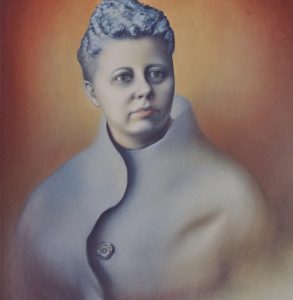Edward Truelove (1809-1899) was an English publisher and freethinker who played a pivotal role in challenging the oppressive norms of Victorian England. With his unwavering commitment to freedom of speech and social reform, Truelove established himself as a staunch advocate for change, particularly in sexual health, secularism, and women’s rights. His trial in 1877 for the publication of an “obscene libel” remains a landmark event in the history of English freedom of speech and continues to inspire activists today.
Early Life and Career
Born in 1809 in Southwark, London, Edward Truelove grew up in a working-class family with limited means. Despite his humble origins, Truelove demonstrated an insatiable curiosity and an affinity for learning. Initially, he was apprenticed as a printer, a trade that would later serve as the foundation for his career as a publisher and radical advocate.
Fueled by his passion for radical politics and freethought, Truelove left his printing apprenticeship behind to establish his own bookshop in Holborn, a district in Central London. This daring venture allowed him to immerse himself in the world of ideas that challenged the status quo of Victorian England.
Truelove’s bookshop published and sold controversial works by prominent radical thinkers and writers, such as George Holyoake, Richard Carlile, and Robert Owen. Holyoake was a renowned secularist and social reformer, Carlile fiercely advocated freedom of the press and parliamentary reform, and Owen was a pioneering socialist and advocate for cooperative societies. By making their works available, Truelove contributed significantly to the dissemination of radical ideas in a society that was highly resistant to change.
In addition to serving as a marketplace for radical literature, Truelove’s bookshop became a gathering place for like-minded individuals who sought an intellectual haven amidst the conservatism of Victorian England. Within the walls of his bookshop, freethinkers and social reformers found a space to exchange ideas and discuss progressive topics, such as secularism, women’s rights, and labour rights. Truelove’s bookshop fostered the spread of these ideas and helped create a sense of community among its patrons.
As a result of his unwavering commitment to free expression and social reform, Truelove’s bookshop quickly gained a reputation as a hub for radical thought and a refuge for freethinkers. Despite facing hostility and legal challenges, Edward Truelove persevered, and his bookshop played a critical role in shaping the discourse on social and political issues in Victorian England.
Commitment to Social Reform
Truelove’s commitment to social reform was unwavering. He openly supported birth control, women’s rights, and secular education. One of his most significant contributions to social reform was the publication of pamphlets on contraception and sexual health. At the time, such topics were considered scandalous and immoral, yet Truelove believed that access to information on sexual health was essential to improve the lives of the working class.
Edward Truelove’s dedication to social reform was courageous and unwavering despite societal disapproval and legal challenges. His commitment to promoting change was manifested through his support for birth control, women’s rights, and secular education. Each area was considered taboo or controversial in Victorian England, yet Truelove remained steadfast in his convictions, using his bookshop to advocate progressive ideas.
Birth Control and Sexual Health
At a time when discussing contraception and sexual health was considered scandalous and immoral, Truelove took the bold step of publishing pamphlets on these crucial topics. He recognised the importance of access to accurate information on reproductive health for the working class, who often bore the brunt of poverty and overpopulation. By disseminating information on birth control and sexual health, Truelove aimed to empower individuals to make informed decisions about their bodies and lives, ultimately improving living conditions for the less privileged.
Women’s Rights
Truelove was also a firm supporter of women’s rights in an era when women were largely confined to traditional roles within the family and denied access to education, property ownership, and political participation. Through his bookshop, he provided a platform for feminist writers and thinkers like Annie Besant and Harriet Martineau to have their voices heard. By making their works available, Truelove contributed to the ongoing debate on women’s rights, helping to pave the way for the eventual social and political advancements of the 20th century.
Secular Education
Truelove strongly believed in the importance of secular education as a means to break free from the dogmatic constraints imposed by religious institutions. He advocated for an education system that promoted critical thinking, individual autonomy, and scientific understanding instead of one that merely reinforced religious orthodoxy. Truelove hoped to foster a more enlightened and rational society by publishing and promoting works on secular education.
The Trial of 1877
In 1877, Edward Truelove found himself at the centre of a high-profile trial that would test the limits of freedom of speech and social reform in Victorian England. Charged with publishing an “obscene libel” – a translation of French philosopher Émile Zola’s novel “La Terre” which portrayed the harsh realities of peasant life in 19th-century France. It was deemed “indecent” by the British authorities.
Truelove’s defence centred on the freedom of the press and the importance of making such literature accessible to the public. Though ultimately found guilty, his trial would galvanise public support and leave a lasting legacy in the fight for free expression.
The Charges and Trial
Truelove was charged with publishing an “obscene libel” because he translated French philosopher Émile Zola’s novel “La Terre.” The novel, which portrayed the harsh realities of peasant life in 19th-century France, was deemed “indecent” by the British authorities. The charges against Truelove threatened his livelihood and represented a broader attack on freedom of speech and social reform.
During the trial, Truelove defended himself by arguing that Zola’s work was a legitimate critique of social conditions and that the obscenity charges attempted to suppress social reform. He emphasised his belief in the freedom of the press and the importance of making such literature accessible to the public. Despite his passionate defence, Truelove was found guilty and sentenced to four months in prison, a decision that would spark a significant public outcry and debate on the subject of free speech and social reform in Victorian England.
The Aftermath and Public Response
In the wake of Truelove’s conviction, there were attempts to secure a writ of error in his case, which would have allowed for an appellate review of the trial. However, Tory Attorney-General Sir John Holker denied the writ, even though other activists such as Charles Bradlaugh and Annie Besant had been granted similar writs in their own cases. Truelove was ultimately forced to serve his sentence, but his plight captured the nation’s attention.
A petition calling for Truelove’s release garnered 11,000 signatures nationwide, demonstrating widespread support for his cause. A packed meeting at St. James’s Hall in London also called for his freedom, highlighting the growing public sentiment against his conviction. Despite the public outcry, Truelove’s sentence remained unaltered, and he was freed from Coldbath Fields Prison on September 5th.
On September 12th, just a week after his release, an enthusiastic crowd at the Hall of Science in London honoured Truelove with a beautifully-illuminated address and a purse holding £177 (later increased to £197 16s. 6d. through further donations). The event underscored the impact of Truelove’s trial on the broader struggle for freedom of speech and social reform in Victorian England. The public support and recognition Truelove received demonstrated that his case resonated with many who shared his commitment to free expression and social change.
Legacy of the Trial
The 1877 trial of Edward Truelove served as a crucial turning point in the fight for freedom of speech and social reform in Victorian England. The public’s response to his conviction and the outpouring of support for his cause underscored the growing dissatisfaction with the limitations on free expression and the suppression of progressive ideas.
Truelove’s trial and the public’s response to it contributed to the ongoing debate on the role of the press and the importance of free speech in a democratic society. It also highlighted the challenges faced by those who sought to advocate for social reform and disseminate controversial ideas during a time of strict censorship and societal constraints.
Though Truelove faced personal hardship due to his conviction, his case inspired future generations of activists and reformers. By standing up for his beliefs in the face of legal adversity, Truelove helped pave the way for a more open and progressive society that valued the free exchange of ideas and the ongoing quest for social reform.
Legacy and Impact
Truelove’s trial became a rallying point for the cause of freedom of speech in England. His case was widely publicised and garnered support from intellectuals, writers, and activists of the time. In the years following his trial, Truelove continued championing the cause of freethought and social reform until he died in 1899.
Edward Truelove’s life and work inspire those who continue to fight for freedom of speech and social reform. His trial, in particular, serves as a stark reminder of the challenges faced by those who dared to challenge the status quo in Victorian England. Today, Truelove’s legacy is a testament to the enduring power of radical thought and the importance of free expression in a just society.

Find out more about campaigning for people’s rights in Victorian London. Listen to London History Podcast episode 103: Annie Besant’s life in mid-nineteenth-century London and episode 104: Annie Besant the Activer Campaigner for Reform.




